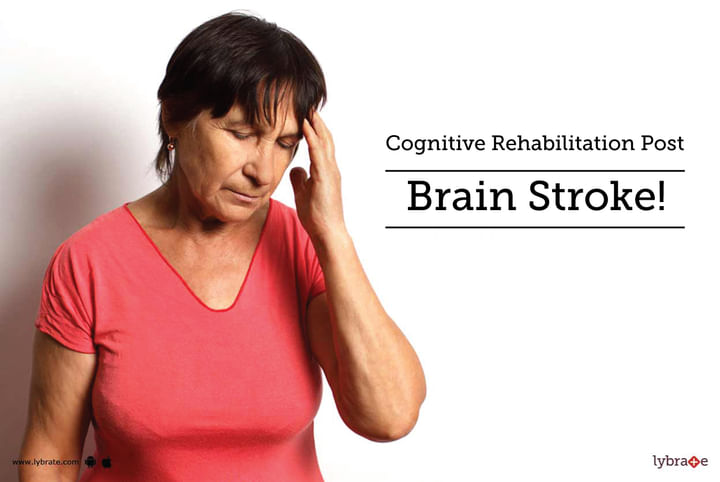Cognitive Rehabilitation Post Brain Stroke!
Somebody in the world suffers a stroke every two seconds. Stroke affects physical as well as mental health gravely. It can be a life- altering situation leading to new limitations overnight. Such limitations can be physical or mental, affecting mobility and cognition. According to psychologists, cognitive functions of the brain encompass speech, language, functional memory, spatial- motor systems, ability to switch between tasks, executive functions like task organization, attention, and being able to employ tools and symbols.
When the stroke strikes, it irreversibly damages a part of the brain. It happens due to hemorrhage or blocked supply of blood. However, the brain can be trained and taught compensatory strategies. These compensatory strategies consist of attention increasing activities that require neurological utilities. These activities and exercises are formed in a way to improve the memory. Both pictorial and hearing skills are engaged in these activities.
Memory, attention span, and executive activities are dependent on each other and any problem regarding these affects an individual’s daily life. That is why to improve the complete mental capacity, exercises are required. These exercises help to improve memory and attention span. In cognitive rehabilitation, goals are set as per the requirements of the patient and treatment is then followed. This requires some plans and strategies to carry out daily activities. These plans may consist of planning and analysis of the task.
The recovery varies from individual to individual depending upon the restoration of the damaged neurological functions supporting specific cognitive area. However, there are very limited types of treatments for cognitive rehabilitation, mostly generic treatments which depends on doctor’s experience.
Evidence is found by researchers which supports the cognitive rehabilitation after stroke, in which the areas discussed are smaller than the issues faced by the stroke survivors. The studies fail to talk about the long-term results and common treatments for daily tasks. It is now really important for us to have a serious innovation in the field of cognitive rehabilitation with the amount of stroke patients increasing day by day.
Before one going for rehabilitation, he/ she should ensure that why they need it and what are their needs that are to be fulfilled through rehabilitation. Experts recommend rehabilitation so that patients are able to lead as normal lifestyle as possible post stroke strikes them.
Who are more prone to stroke?
Old age people, alcoholics, people with high cholesterol levels, active smokers, Diabetic patients, people who consume drugs, people suffering from Hypertension, patients going through transient ischemic attack (TIA) are all very much prone to a stroke.
It is also very important to consult a doctor after stroke. He will advise you the best possible way to treat the problem.
Take away
Stroke these days can happen to anyone which although largely depends upon the age factor, but one's lifestyle can also make him/her the target of stroke. There is cognitive rehabilitation which can help a person to recover post stroke through activities and exercises and change in lifestyle. It is important for an individual to consult a doctor if he/she finds any difficulty in carrying out daily activities with one side of the body.



+1.svg)
